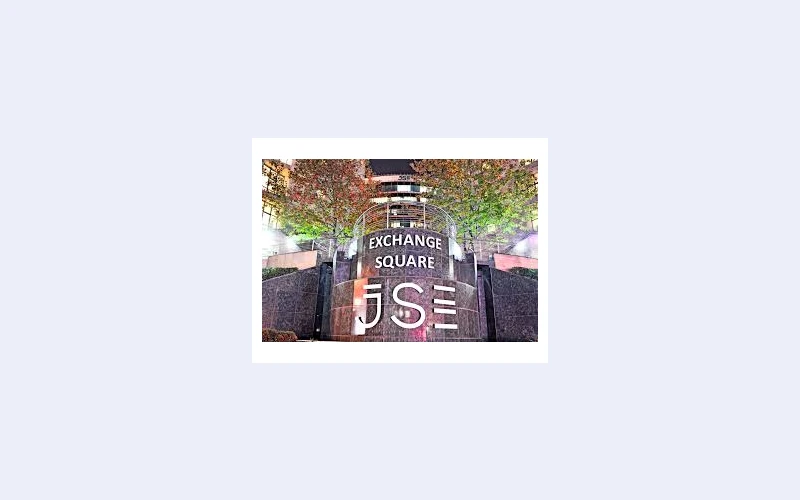Negotiable
A Comprehensive Guide to the Johannesburg Stock Exchange (JSE)
- Category: Online Services
- Sub Category: Other Online Services
- Location: George, Gauteng
- Ad Posted: 2 months ago
- Website: https://www.jse.co.za/
Descirption
The Johannesburg Stock Exchange (JSE) stands as the largest and most prominent stock exchange in Africa. Founded in 1887, the JSE has grown to become a global player in the financial market, offering a platform for investors to engage with both domestic and international assets. Whether you're new to investing or an experienced trader, the JSE offers numerous opportunities to grow wealth, with a diverse range of shares, derivatives, and indices. This article will explore the key aspects of the JSE, focusing on the JSE All Share Index, derivatives, and the process of investing in JSE-listed companies.
1. What is the Johannesburg Stock Exchange?
The Johannesburg Stock Exchange (JSE) is Africa’s largest stock exchange and ranks as the 16th largest globally by market capitalization. It is located in Sandton, Johannesburg, South Africa, and serves as the hub for the country’s financial and investment activities. The JSE facilitates the trading of shares, bonds, commodities, derivatives, and other financial instruments, helping businesses raise capital while providing investors with various investment opportunities.
In addition to its role in the South African economy, the JSE has a significant global presence, linking investors and companies from across the world. As a member of the World Federation of Exchanges (WFE), it ensures that trading on the platform meets international standards of transparency, fairness, and security.
2. The JSE All Share Index: A Key Market Indicator
One of the most widely followed indices on the Johannesburg Stock Exchange is the JSE All Share Index. It tracks the performance of the largest companies listed on the JSE, providing investors with an overall view of the South African stock market’s health. The index includes a broad spectrum of industries, from mining and energy to banking and telecommunications, reflecting the diverse nature of the South African economy.
The JSE All Share Index is a market capitalization-weighted index, meaning that the larger companies with higher market values have a more significant influence on the index’s movements. This makes it an important tool for investors looking to assess the general performance of the South African stock market, including those interested in tracking the progress of specific sectors.
3. JSE All Share Companies: A Diverse Portfolio
The JSE All Share Index is composed of a wide variety of companies, with notable players including large banks, mining giants, and prominent retail and telecommunications firms. Some of the leading companies on the JSE All Share Index include:
Naspers: A global consumer media and ecommerce group.
Sasol: An integrated energy and chemical company.
Standard Bank Group: One of the largest banks in South Africa.
Anglo American: A global mining company with operations in multiple countries.
MTN Group: A leading telecommunications provider in Africa.
These companies, along with many others, represent a solid cross-section of South Africa’s economy, offering investors opportunities to diversify their portfolios.
4. Derivatives Trading on the JSE
Derivatives are financial instruments whose value is derived from an underlying asset such as a stock, bond, or commodity. The Johannesburg Stock Exchange offers a robust derivatives market that allows investors to trade a wide range of derivative products, including futures contracts, options, and swaps.
Trading derivatives on the JSE provides investors with opportunities to hedge risks, speculate on price movements, and manage portfolio exposure. Common derivative instruments traded on the JSE include:
Futures contracts: Agreements to buy or sell an asset at a predetermined price at a specified future date.
Options: Contracts that give the holder the right, but not the obligation, to buy or sell an asset at a set price before the option expires.
Swaps: Contracts in which two parties agree to exchange financial instruments or cash flows.
By engaging in derivatives trading, investors can benefit from leverage, but it’s important to note that derivatives can be risky, and careful consideration of market conditions and trading strategies is necessary.
5. How to Buy Shares in JSE Listed Companies
Investing in JSE-listed companies is a straightforward process, though it requires a well-considered approach. Here are the basic steps to begin investing in JSE-listed shares:
Open a Brokerage Account: To buy shares listed on the JSE, investors must first open an account with a licensed brokerage firm. Many brokers offer online platforms that allow you to trade shares at competitive fees.
Choose Your Shares: Once you have access to the trading platform, you can browse the JSE All Share Index to find companies that align with your investment goals. It’s advisable to research the companies and sectors you’re interested in before making any investment decisions.
Place Your Order: After selecting your shares, you can place an order through your broker’s platform. You’ll need to specify how many shares you want to buy and at what price. You can place a market order (buying at the current price) or a limit order (setting a price at which you’re willing to buy).
Monitor Your Investments: After purchasing shares, it’s important to monitor the performance of your investments regularly. You can track the JSE All Share Index and the performance of individual stocks to stay updated on the latest market movements.
6. Is Eskom a JSE Listed Company?
As of now, Eskom, the South African state-owned electricity supplier, is not listed on the Johannesburg Stock Exchange. While Eskom plays a pivotal role in South Africa's energy infrastructure, it has faced significant financial challenges over the years, including high levels of debt and management issues.
However, there have been discussions about potential privatization or listing in the future, as the government seeks to stabilize Eskom’s financial position and improve its operations. Currently, Eskom remains under state control, with its financial performance impacting the broader economy and energy sector.
7. How Many Listed Companies are on the JSE?
The Johannesburg Stock Exchange is home to over 300 listed companies, which include a diverse mix of large corporations, small and medium enterprises, and multinational firms. These companies span various sectors, including financial services, mining, retail, healthcare, and technology.
The JSE provides a platform for these companies to raise capital by issuing shares to the public, and in return, investors can gain access to ownership stakes in these companies. The JSE All Share Index, which tracks the performance of the top companies, includes many of these firms, and it serves as a key barometer for the South African stock market’s overall performance.
8. How to Track the JSE All Share Index
Tracking the performance of the JSE All Share Index is a critical task for any investor interested in South African equities. The JSE All Share Index reflects the collective performance of a broad range of companies listed on the exchange, offering a snapshot of market trends and economic health.
Investors can monitor the JSE All Share Index through financial news platforms, trading apps, and the official JSE website. Daily movements, along with weekly and monthly charts, are often used to evaluate the overall market sentiment. The JSE All Share Index can also be accessed through exchange-traded funds (ETFs) that allow investors to track its performance without directly owning individual stocks.
9. JSE Today: Live Updates and Market News
Staying updated with the latest news about the Johannesburg Stock Exchange is crucial for active investors. The JSE today section on the official JSE website provides real-time data, including stock prices, index movements, and market news.
Investors can access live updates on the JSE All Share Index and other relevant indices such as the JSE FTSE All Share and individual stock performances. Market news helps investors stay informed about economic conditions, corporate earnings reports, and global factors that could impact the JSE.
10. Top 10 JSE Companies to Invest In
Choosing the right JSE-listed companies to invest in can be a daunting task, but it is critical for achieving long-term financial growth. The top 10 JSE companies to invest in often include large, stable firms with strong earnings and growth potential. These companies are typically leaders in their respective industries, such as:
Naspers
Standard Bank Group
Anglo American
MTN Group
Sasol
These companies are among the most prominent on the JSE All Share Index and are often seen as solid investment choices due to their market dominance, profitability, and growth prospects. When selecting companies to invest in, investors should consider factors such as the company's financial health, competitive position, and future growth potential.
Conclusion
The Johannesburg Stock Exchange is a vital player in both the South African and global financial landscapes. With a diverse range of financial instruments, including derivatives, ETFs, and stocks, the JSE offers a wealth of investment opportunities for individuals and institutions alike. By understanding the JSE All Share Index and tracking its performance, investors can make informed decisions and build successful investment portfolios.
Whether you are looking to invest in well-established companies, trade derivatives, or follow market trends, the Johannesburg Stock Exchange remains an essential platform for financial growth in Africa.







-67459a069b875.webp)





-66dff8afb6324.webp)
-66dea2776a26d.webp)

-66a782afaa1f8.webp)
-669fac3146d76.webp)
-674705153f83d.webp)
-6746d911c5a9f.webp)

